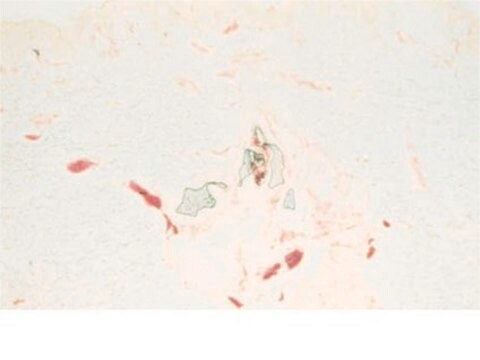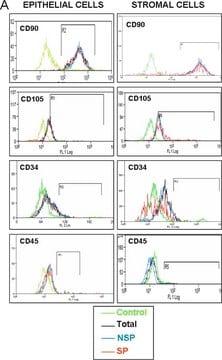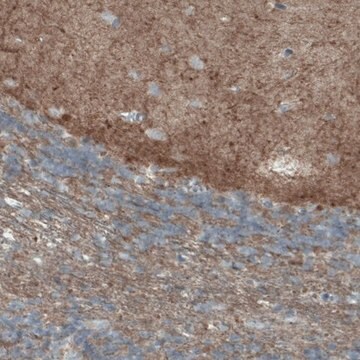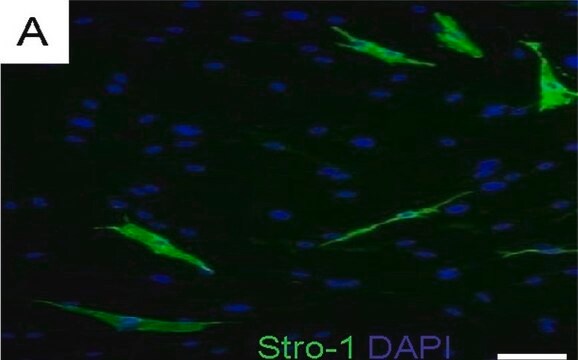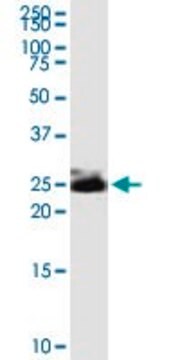CBL415
Anti-Thy-1 Antibody, clone F15-42-1
clone F15-42-1, Chemicon®, from mouse
Synonyme(s) :
CD90
About This Item
Produits recommandés
Source biologique
mouse
Niveau de qualité
Forme d'anticorps
purified antibody
Type de produit anticorps
primary antibodies
Clone
F15-42-1, monoclonal
Espèces réactives
human
Fabricant/nom de marque
Chemicon®
Technique(s)
flow cytometry: suitable
immunohistochemistry: suitable
immunoprecipitation (IP): suitable
Isotype
IgG1
Numéro d'accès NCBI
Numéro d'accès UniProt
Conditions d'expédition
wet ice
Informations sur le gène
human ... THY1(7070)
Spécificité
Application
Studies of renal corticol fibroblasts in progressive renal disease.
Epitope is resistant to trypsin treatment used to release adherent cells from surfaces. Antibody not tested in fixed tissue.
Optimal working dilutions must be determined by the end user.
Liaison
Forme physique
Informations légales
Not finding the right product?
Try our Outil de sélection de produits.
Code de la classe de stockage
12 - Non Combustible Liquids
Classe de danger pour l'eau (WGK)
WGK 2
Point d'éclair (°F)
Not applicable
Point d'éclair (°C)
Not applicable
Certificats d'analyse (COA)
Recherchez un Certificats d'analyse (COA) en saisissant le numéro de lot du produit. Les numéros de lot figurent sur l'étiquette du produit après les mots "Lot" ou "Batch".
Déjà en possession de ce produit ?
Retrouvez la documentation relative aux produits que vous avez récemment achetés dans la Bibliothèque de documents.
Articles
Development of a novel serum-free and xeno-free human mesenchymal stem cell (MSC) osteocyte differentiation media.
Protocoles
Information about mesenchyme, specifically mesenchymal stem cell procotols. Step-by-step cell culture protocols for mesenchymal stem cell (MSC) isolation, expansion and differentiation.
Notre équipe de scientifiques dispose d'une expérience dans tous les secteurs de la recherche, notamment en sciences de la vie, science des matériaux, synthèse chimique, chromatographie, analyse et dans de nombreux autres domaines..
Contacter notre Service technique


